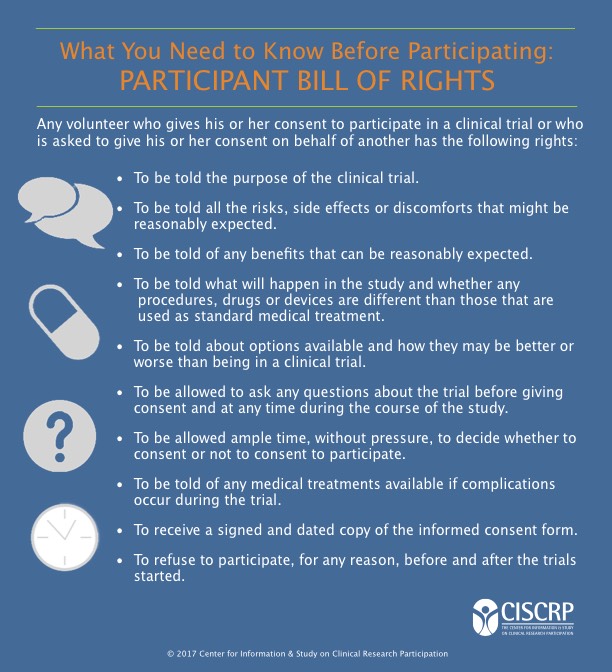Understanding Clinical Trials
- 0About this program
- 1What is a clinical trial?
- 2Can I take part in a clinical trial?
- 3What medicine would I receive as part of a clinical trial?
- 4What do I have to do in a clinical trial?
- 5How safe is a clinical trial?
- 6Do I have to pay to take part?
- 7Why would I take part in a clinical trial?
- 8How do I find a clinical trial?
- 0About this program
- 1What is a clinical trial?
- 2Can I take part in a clinical trial?
- 3What medicine would I receive as part of a clinical trial?
- 4What do I have to do in a clinical trial?
- 5How safe is a clinical trial?
- 6Do I have to pay to take part?
- 7Why would I take part in a clinical trial?
- 8How do I find a clinical trial?
Content on HealthUnlocked does not replace the relationship between you and doctors or other healthcare professionals nor the advice you receive from them.
Never delay seeking advice or dialling emergency services because of something that you have read on HealthUnlocked.
How safe is a clinical trial?
Myth: Once signed up, volunteers must complete the study.
 Informed consent is a process of learning the key facts about a clinical trial before deciding whether or not to participate. It is a continuing process throughout the study to provide information for participants.
Informed consent is a process of learning the key facts about a clinical trial before deciding whether or not to participate. It is a continuing process throughout the study to provide information for participants.
To help someone decide whether or not to participate, the doctors and nurses involved in the trial explain the details of the study. If the participant's native language is not English, translation assistance can be provided.
Then the research team provides an informed consent document that includes details about the study, such as its purpose, duration, required procedures, and key contacts. Risks and potential benefits are explained in the informed consent document. The participant then decides whether or not to sign the document.
This document includes all the information needed to help decide on whether to take part in the trial. Any volunteer who gives their consent has the following rights:
 Download the Participant Bill of Rights
Download the Participant Bill of Rights
Leaving a clinical trial

Informed consent is not a contract, and the participant may withdraw from the trial at any time. You may leave the trial at any time, but should always let the clinical trial team know first, because some medicines should not be stopped without the doctor’s help.
Content on HealthUnlocked does not replace the relationship between you and doctors or other healthcare professionals nor the advice you receive from them.
Never delay seeking advice or dialling emergency services because of something that you have read on HealthUnlocked.